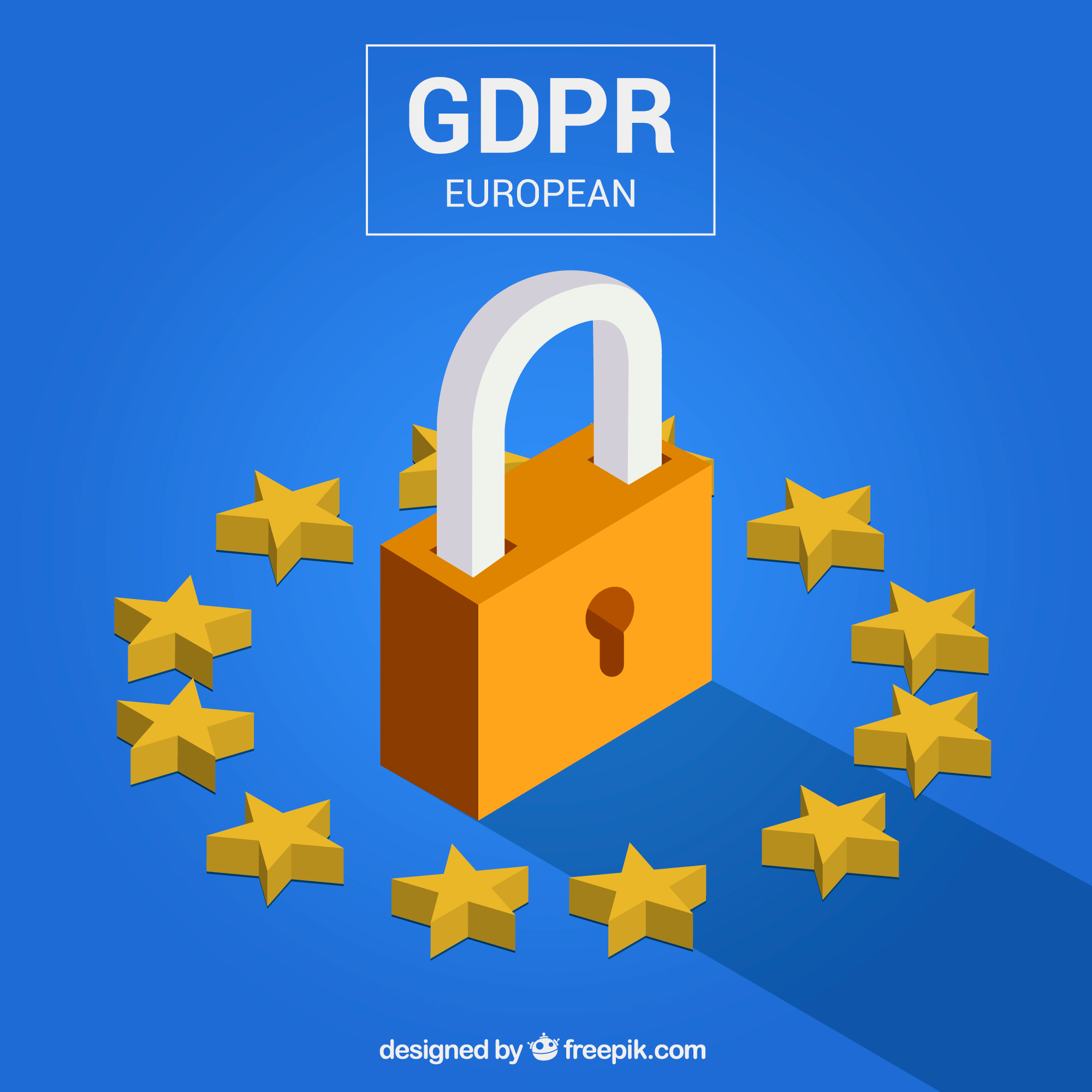The General Data Protection Regulation, commonly known as GDPR, has transformed the landscape of digital marketing by prioritising consumer privacy and data protection. Since its enforcement in May 2018, GDPR has set stringent standards for the collection, storage, and processing of personal data, compelling marketers to reassess their strategies. Now, obtaining explicit consent from European residents before using their data is no longer a choice but a legal requirement, making transparency and compliance crucial components of any effective marketing campaign.

Understanding GDPR is essential for marketers because non-compliance can lead to severe financial penalties and damage to a company’s reputation. Marketers must navigate through its complexities to continue leveraging consumer data without infringing on individual rights. The regulation emphasises the need for businesses to implement adequate data protection and security measures to safeguard consumer information against breaches and misuse. This comprehensive approach to data handling reshapes not only the interaction between businesses and consumers but also the internal processes of data controllers and processors.
Understanding GDPR Basics
As digital marketing experts, we understand the importance of data protection and privacy, especially in the evolving online landscape. In this section, our focus is on the General Data Protection Regulation (GDPR), a pivotal privacy law created by the EU to strengthen and unify data protection for individuals within the European Union.
What Is GDPR?
GDPR stands for the General Data Protection Regulation, a comprehensive data privacy law enforced on May 25, 2018. It represents the EU’s effort to give individuals more control over their personal data and to simplify the regulatory environment for international businesses by aligning data privacy laws across Europe. GDPR has set the bar for privacy laws globally, influencing numerous countries to re-evaluate and adjust their own data protection standards.

Key Principles of GDPR
The GDPR stands on several key principles that dictate the collection and processing of personal data. These are:
- Lawfulness, fairness, and transparency: Data must be processed legally, fairly, and in a transparent manner in relation to the individual.
- Purpose limitation: Data can only be collected for specified, explicit, and legitimate purposes.
- Data minimisation: Only data that is necessary for the intended purpose should be collected.
- Accuracy: Data must be kept accurate and, where necessary, up to date.
- Storage limitation: Personal data should be retained only as long as necessary for the purposes for which it is processed.
- Integrity and confidentiality: Data should be processed to ensure security, including protection against unauthorised or illegal processing and accidental loss, destruction, or damage.
Complying with these principles is not only mandatory but also reinforces trust between businesses and consumers.
Scope and Jurisdiction
The jurisdiction of GDPR is notably broad. It applies to any organisation operating within the EU and to organisations outside the EU that offer goods or services to individuals in the EU. The principles of GDPR protect the data rights of EU residents, even if the data is processed by companies based outside the EU. This extraterritorial scope of the GDPR has prompted businesses worldwide to revise their data protection practices to ensure compliance.
By adhering to these basics of GDPR, we at ProfileTree advocate compliance and ethical data management, thereby fostering a safer space for both businesses and consumers in the digital domain. Our digital strategies always incorporate vital GDPR principles to safeguard our clients and maintain the highest standards of privacy.
GDPR and Marketing Fundamentals
Understanding GDPR and its implications on marketing is essential for compliance and the development of effective strategies. As experts in the field, we offer insights into the foundational aspects where GDPR intersects with marketing practices.
GDPR Compliance for Marketers
Marketers need to ensure full compliance with GDPR, which emphasises the importance of consent when handling personal data. This involves acquiring explicit permission from individuals before collecting, processing, or storing their data. We integrate clear Calls to Action and transparent information policies so individuals understand what they’re consenting to.
The Impact on Digital Marketing
The introduction of GDPR has redefined the digital marketing landscape. Marketers must now rely less on behavioural data and more on data obtained through compliant methods. As a consequence, personalisation strategies must align with GDPR to avoid hefty fines and loss of consumer trust. From our experience, respecting privacy fosters greater loyalty.
Marketing Strategies Aligned with GDPR
Our marketing strategies reflect a GDPR-aligned approach. The focus is on creating content that engages the audience and respects their data privacy rights. For instance, we’ve seen that consent-driven campaigns can significantly improve the quality of leads and email marketing metrics, affirming that trust and transparency are crucial to success in the marketing industry.
Consumer Rights Under GDPR
Under the General Data Protection Regulation (GDPR), consumers have been empowered with specific rights regarding their personal data. These rights ensure individuals have more control and transparency over their data in interactions with businesses.
The Right to Be Informed
Individuals have the entitlement to be informed about the collection and use of their personal data. Organisations must provide clear and concise information at the point of data collection, outlining what data is gathered, how it’s used, and why it’s necessary. This should be communicated in plain language to ensure customers fully understand the implications of the data collection.
The Right to Access
Consumers have the right to access their personal data that is processed by an organisation. This means individuals can request a copy of the data held about them, commonly known as a ‘subject access request.’ This allows consumers to verify the lawfulness of the processing.
The Right to Rectification
When personal data is inaccurate or incomplete, individuals have the right to have it rectified. Organisations must respond to a request for rectification without undue delay, typically within one month, ensuring that customers’ data remains up-to-date and correct.
The Right to Erasure
Also known as the right to be forgotten, this allows individuals to request the deletion or removal of personal data where there is no compelling reason for its continued processing. This right is particularly relevant where data has been obtained without proper consent or is no longer necessary for the purpose for which it was collected.
Rights Related to Automated Decision-Making
Individuals have the right not to be subject to a decision based solely on automated processing, including profiling, which produces legal effects concerning them. This ensures that any decision made without human intervention has the individuals’ express consent, and they are entitled to challenge and request a manual review of the automated processing.
By safeguarding these rights, GDPR places individuals at the heart of data privacy and security, carving a path for businesses to foster greater trust and compliance.
Data Collection and Consent

As we navigate the digital landscape, understanding the intricacies of data collection and consent under GDPR is essential for marketers. The correct handling of personal data not only complies with the law but also fosters consumer trust.
Opt-In vs. Opt-Out Methods
We can collect data using either opt-in or opt-out methods. Opt-in requires active confirmation from the individual before any data is collected, often seen as the more stringent and consumer-friendly approach. In contrast, opt-out provides data subjects with the opportunity to refuse the data collection after it has initially been assumed acceptable. GDPR mandates that clear and affirmative consent is obtained, thus making the opt-in method a necessity in many scenarios.
Obtaining Explicit Consent
Explicit consent means that an individual is clearly informed about the extent and implications of the data collection and processing they are consenting to. This should be unambiguous and involve a direct action, such as ticking a box to indicate consent. It cannot be inferred from inactivity or pre-ticked boxes. For example, “ProfileTree’s Digital Marketing Team” always ensures that users are provided with straightforward information on what their data will be used for before they give their explicit consent.
Records of Consent and Withdrawal
Maintaining records of when and how an individual gave consent is crucial. These records prove compliance and allow us to update individuals about their data upon request. Similarly, if an individual decides to withdraw consent, we must have systems in place to facilitate this easily. Documenting withdrawals is just as important as ensuring that the data is not used inappropriately after consent has been repealed. Considering these nuances, “ProfileTree’s” Web Development Team creates systems that accurately track and manage user consent and its withdrawal.
By implementing these GDPR guidelines diligently, we demonstrate our commitment to privacy and ethical marketing practices.
GDPR Compliance Procedures
Achieving GDPR compliance is imperative for businesses to ensure that they handle personal data in line with the law. This section outlines key procedures to adhere to, including developing a checklist, conducting impact assessments, and establishing data processing agreements.
Creating a GDPR Compliance Checklist
A GDPR Compliance Checklist is essential for businesses to understand their responsibilities under the GDPR. We recommend including the following critical points on your checklist:
- Register with the data protection authority if required.
- Appoint a Data Protection Officer (DPO) if necessary.
- Map out all data processing activities and ensure they have a lawful basis.
- Implement measures to obtain valid consent from data subjects.
- Establish processes for responding to data subject rights requests, such as access, rectification, and erasure.
Emphasising the importance of a thorough checklist, ProfileTree’s Web Development Team states, “A comprehensive GDPR checklist not only guides businesses through compliance but also serves as an ongoing reference to maintain data protection standards.”
Data Protection Impact Assessments
The GDPR mandates Data Protection Impact Assessments (DPIAs) for processes that pose high risks to individuals’ rights and freedoms. These assessments should:
- Evaluate the necessity and proportionality of processing activities.
- Identify and assess risks to data subjects.
- Determine measures to mitigate potential risks.
“Conducting DPIAs is not just a compliance exercise; it’s a way to embed privacy into the very fabric of our projects,” notes ProfileTree’s Digital Marketing Team.
Data Processing Agreements
Data Processing Agreements (DPAs) are legally binding contracts required between data controllers and processors. Our advice for creating DPAs includes:
- Define the subject matter, duration, nature, and purpose of processing.
- Ensure the processor implements appropriate technical and organisational measures.
- Allow for regular audits of the processor’s activities relating to data protection.
“DPAs are your safety net, ensuring that processors adhere to GDPR guidelines and protect data as diligently as we do,” advises Ciaran Connolly, founder of ProfileTree.
Data Protection and Security
In marketing, data protection and security are integral to maintaining consumer trust and compliance with regulations. GDPR elevates these responsibilities, requiring rigorous data security measures and transparent practices.
Enhancing Data Security
We must establish robust data security measures to safeguard personal data against unauthorised access or breaches. This involves utilising strong encryption, regular security audits and ensuring that only authorised personnel have access to personal data. We must protect our customers’ information as if it were our own.
Reporting Data Breaches
In the event of a data breach, we are required to promptly report to the appropriate data protection authorities within 72 hours, where feasible, after becoming aware of it. If the breach poses a high risk to individuals’ rights and freedoms, we’re also responsible for informing the affected persons without undue delay.
Data Minimisation and Storage Limitation
We adopt a data minimisation approach, collecting only what is essential for specific, explicit purposes. Moreover, we adhere to data storage limitation practices, retaining personal information for no longer than necessary. By doing so, we not only comply with GDPR but also reinforce trust through our commitment to data privacy.
Legal Bases for Processing Personal Data
The General Data Protection Regulation (GDPR) stipulates specific legal grounds on which personal data may be processed lawfully. Understanding these is crucial for data controllers to ensure that their data handling practices comply with the regulations.
Consent as Legal Basis
Consent is a fundamental legal basis for processing personal data. It must be freely given, specific, informed, and an unambiguous indication of the data subject’s wishes. A clear affirmative action—such as ticking a box or clicking an opt-in message—signifies agreement to the processing of their personal data for one or more specific purposes. It’s noteworthy that consent should be as easy to withdraw as it is to give.
Examples of consent include
- An individual subscribes to a marketing newsletter.
- Someone agreeing to their data being used for research purposes.
Legitimate Interest
The concept of legitimate interest permits data controllers to process personal data if there is a genuine and legitimate reason, including a business or commercial reason, to do so and as long as this use does not harm the individual’s rights and interests. When relying on legitimate interest, organisations must conduct a Legitimate Interest Assessment to balance their interests against the individual’s.
When can legitimate interest be applicable?
- To prevent fraud.
- For direct marketing purposes.
- For IT security purposes.
Legal Compliance and Public Interest
Organisations may also process personal data to comply with legal obligations. This pertains to situations where processing is necessary for a data controller to comply with a legal obligation to which they are subject. Furthermore, data can be processed if it is essential for performing a task carried out in the public interest or in the exercise of official authority vested in the data controller.
Instances where this basis is applicable include
- Fulfilling tax obligations.
- Fulfilling duties in the realm of employment law.
OperationExceptionally, ProfileTree must educate SMEs on the intricacies of data processing within GDPR. Our experts at ProfileTree’s Digital Marketing Team underline that “Navigating the GDPR is not just about compliance but leveraging data protection as a framework to build trust with clients and enhance your marketing strategies.” Using relevant keywords such as the legal basis for processing personal data seamlessly in our discussion ensures we cater to our audience with SEO-optimised, informative content. We also employ web-specific techniques to make our content scannable and easy to digest.
Responsibilities of Data Controllers and Processors
In the GDPR, the lines are clearly drawn between data controllers and processors. Both carry crucial responsibilities that uphold the pillars of data protection policy. Our focus is on detailing their distinct roles and the symbiotic nature of their functions.
Role of Data Controllers
Data controllers bear the fundamental accountability for the personal data handled within an organisation. It is our responsibility to define why and how personal data is processed, ensuring a robust data protection policy is in place. Our duties include maintaining the principles of GDPR, such as fairness, lawfulness, and transparency in processing personal data. Crucially, we must implement measures that satisfy GDPR requirements, a process which includes constructing a clear policy on data handling and securing consent from data subjects.
Data Processor Obligations
Data processors are entities that process personal data on behalf of a controller. Our obligations involve strictly adhering to the instructions of the data controller and ensuring technical and organisational measures are in place to protect the data being processed. This encompasses implementing appropriate security protocols and reporting any data breaches in a timely manner. It is pivotal that we, as processors, understand our role in the larger schema of data processing and the expectations laid out by controllers and regulations alike.
Joint Controller Arrangements
When we embark on projects where two or more entities determine the purposes and means of data processing together, we enter into joint controller arrangements. Here, it is imperative to have a transparent agreement that clearly outlines respective responsibilities for compliance. This ensures individuals understand who to contact for potential queries or concerns about their personal data. It is within these arrangements that we must streamline communication and action between controllers to maintain accountability and integrity in our data processing practices.
Our rigorous approach to GDPR outlines the environment where marketing and data protection intersect. By adhering to these well-founded principles, we enhance trust with our customers, fortify our data handling processes, and solidify our stance on privacy in the digital age.
Penalties and Enforcement

In the realm of data protection, non-compliance with the General Data Protection Regulation (GDPR) carries significant risks, including fines, which can severely impact a company’s finances and reputation.
Understanding the Fines and Penalties
The GDPR delineates two tiers of fines, the upper level being up to €20 million or 4% of the firm’s annual global turnover of the previous year, whichever is higher. These penalties are imposed for breaches of core GDPR principles, rights of the data subjects, and international data transfer rules. Lesser infractions incur fines of up to €10 million or 2% of the total yearly global revenue, prioritising actions like failing to maintain records, non-compliance with impact assessment requirements, and inadequate data security.
High-Profile GDPR Fines
Major firms have faced hefty fines under GDPR enforcement. Google was fined €50m in France for lack of transparency and consent issues related to ad personalisation. Additionally, British Airways was handed a £183m penalty for insufficient security measures that led to a data breach affecting customer information in 2018. These high-profile cases demonstrate the regulation’s far-reaching implications and its enforcement across various industries.
Avoiding Non-Compliance
To avoid such consequences, it’s essential to have an in-depth understanding of GDPR requirements. Regular audits, employee training, and robust data protection procedures can help maintain compliance. As we at ProfileTree suggest, embedding privacy by design in your organisation’s ethos is not only necessary for compliance but also serves as a trust signal to customers, enhancing brand loyalty. In our practice, we have seen that proactive engagement with these regulations can be turned into a competitive advantage.
Best Practices for GDPR-Compliant Marketing
To thrive under GDPR regulations, marketers must adopt practices that honour privacy while still enabling effective targeting and personalisation.
Privacy by Design in Marketing
Privacy by Design is a proactive approach where data protection is integrated into marketing strategies from the onset. We ensure that privacy considerations precede marketing efforts, embedding data protection into the DNA of every campaign. This starts by minimising data collection to what is absolutely necessary and making sure that consent is sought clearly and unambiguously. In our experience, a transparent consent mechanism reassures customers and builds trust.
Using Data Analytics Responsibly
When it comes to data analytics, responsibility is paramount. This involves applying GDPR principles to how we collect, analyse, and store data. For instance, personal data must be anonymised before analysis. When we handle analytics, it’s crucial to provide clear information about what data is being used for and allow customers to opt out if they wish. This maintains the integrity of personalisation efforts and aligns with GDPR’s requirements for the lawful processing of data.
Leveraging GDPR for Better Customer Experience
The GDPR, rather than being a stumbling block, can be leveraged to enhance the customer experience. Through transparent communication and by respecting user privacy, we can create more meaningful customer interactions. By honouring their preferences and protecting their data, we turn GDPR compliance into a competitive advantage, thereby deepening customer trust and loyalty. As “ProfileTree’s Digital Marketing Team” points out, “View GDPR not as a barrier, but as an impetus to fine-tune your marketing to be as relevant and welcomed as possible.”
By incorporating these practices, we can help ensure that our approaches to marketing are not only compliant with GDPR but also lay the groundwork for better relationships with our customers.
Frequently Asked Questions
As specialists in digital marketing, we recognise the importance of understanding the General Data Protection Regulation (GDPR) and its implications on marketing efforts. Below, we’ve prepared answers to the most pressing questions, ensuring our strategies remain compliant and effective for ourselves and our clients.
What actions must marketers take to ensure compliance with GDPR?
To comply with GDPR, marketers must ensure they have clear consent for the use of personal data, conduct regular data audits, provide easy-to-understand privacy notices, and maintain transparent data processing activities. Our GDPR Readiness Assessment Tool can support this process.
How does GDPR affect the use and storage of customer data in marketing activities?
Under GDPR, customer data must be stored securely and used in a way that respects the individual’s privacy. This means limiting data access, implementing strong security measures, and deleting data that is no longer needed for its original purpose. The regulation reshapes how we as marketers approach customer-centric regulation.
What constitutes valid consent for marketing under GDPR regulations?
Valid consent must be freely given, specific, informed, and unambiguous. This means we must obtain explicit permission from individuals before processing their data for marketing purposes and that pre-ticked boxes or inactivity cannot constitute consent. Guidance on valid consent can align our client strategies with GDPR’s requirements.
In what ways does the GDPR impact email and direct marketing strategies?
GDPR requires explicit consent for email and direct marketing. We must ensure the recipients have opted in and can easily unsubscribe at any time. The regulation also emphasises the importance of relevance and personalisation in marketing communications.
How can businesses manage marketing mailing lists to adhere to GDPR requirements?
Businesses should regularly review and update their mailing lists, ensuring all contacts have given express consent. It’s also key to provide clear information on how subscribers can withdraw consent and manage their data preferences. This approach respects user privacy and transforms digital marketing to be more consent-focused.
What are the consequences for marketing departments failing to comply with GDPR?
Failing to comply with GDPR can result in substantial fines, legal action, and damage to reputation. Our role is to safeguard our marketing strategies against these consequences through continual GDPR education, rigorous data protection practices, and upholding the principles of transparency and accountability across all marketing campaigns.


